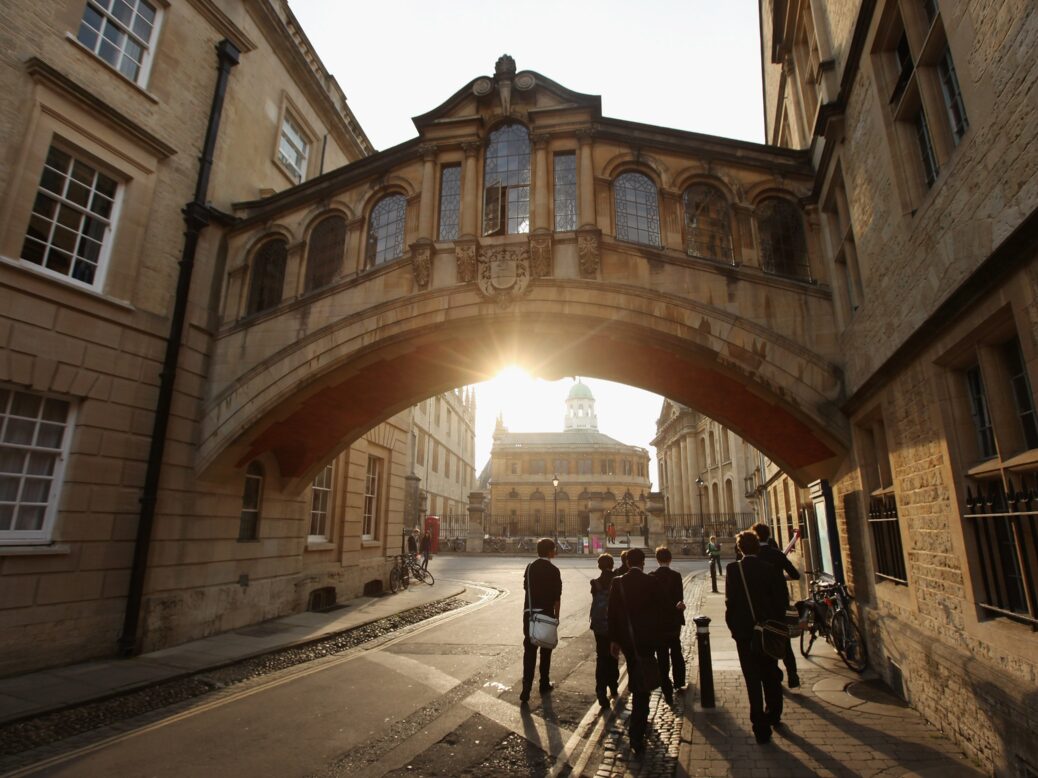
I was very saddened to read in Peter Wilby’s column of the demise of Ruskin College in Oxford (First Thoughts, 9 July). In the early 1960s, I was a conventional entry straight from school: I had the luck to bump into a Ruskin-educated student at breakfast on my first morning. He was five years older than I and through him I got to know well several Ruskin graduates at various colleges. Having knocked about before entering higher education, they brought maturity and worldly wisdom to an institution that was otherwise pretty callow. They included Oxford’s then oldest undergraduate, a man in his forties who had served previously at the Colonial Office. Mostly, having no Latin, the Ruskin entrants took their degrees in two rather than three years. All those I knew went on to distinguished careers; my first-morning acquaintance became a lifelong friend. The college that gave them their opportunities will be much missed.
Robert Chesshyre
London SW14
[see also: First Thoughts: A warning from Canada, mask wars, and the loss of Ruskin College]
Changing history
As a British historian who has made a career out of studying Anglo-Scottish relations during the late Middle Ages from both sides of the border, it is somewhat galling to be informed by Simon Jenkins that “every British historian… except the admirable Norman Davies”, has “told only the story of soft, warm England” (“The return of the Celts”, 9 July).
If he had even a nodding acquaintance with postwar work on the history of Britain, he might have noticed that one of its most significant and influential developments has been the emergence since the 1980s of a school of truly British history, with Scottish, Welsh, Irish and, indeed, English historians – and not just Norman Davies – examining the changing relationships between the various different polities of the British Isles, and in the wider context of European and world history. Perhaps he should try reading something a bit more up-to-date.
Andy King, lecturer in medieval history
University of Southampton
QE means green
Scott Wijayatilake’s letter (Correspondence, 9 July) fails to grasp the significance of Christopher Gasson’s important article on the role of quantitative easing (QE) in funding a fairer, more secure and greener national economy. Gasson rightly points out that Labour’s great missed opportunity was its failure to realise how QE could be redirected towards funding the ever-present shortfalls in public expenditure. Opposition parties and their activists need to grasp this fact.
Colin Hines
Convenor, UK Green New Deal
Through the ages
I grew up drinking underage in a community pub with mixed generational drinkers. The Basketmakers is a cracking pub with good memories for me too (Down and Out, 2 July). There are pub people and non-pub people. I am a pub person and so was my girlfriend of four years at Oxford Poly in the late 1970s. We met up a couple of years ago in the Basketmakers. I echo Nicholas Lezard’s enjoyment of spending time with his son and his mates. My trips leapt the generations too.
Ian Cox
Via email
Weed warning
My appreciation of self-seeded plants (Gardening, 9 July) does not extend to the mysterious carrot that came up in a row of conventional carrots and turned out to be deadly hemlock. Beware!
Margaret Sherborne
Barry, Vale of Glamorgan
NS heartbreak
Could one of you please go over to Pippa Bailey’s desk (Deleted Scenes, 9 July) and give her a hug? From all of us?
David Gibson
London E11
[see also: In my new single life, music, TV, films and books have become a ghost train of lurking frights]
We reserve the right to edit letters.
This article appears in the 14 Jul 2021 issue of the New Statesman, Apple vs Facebook





